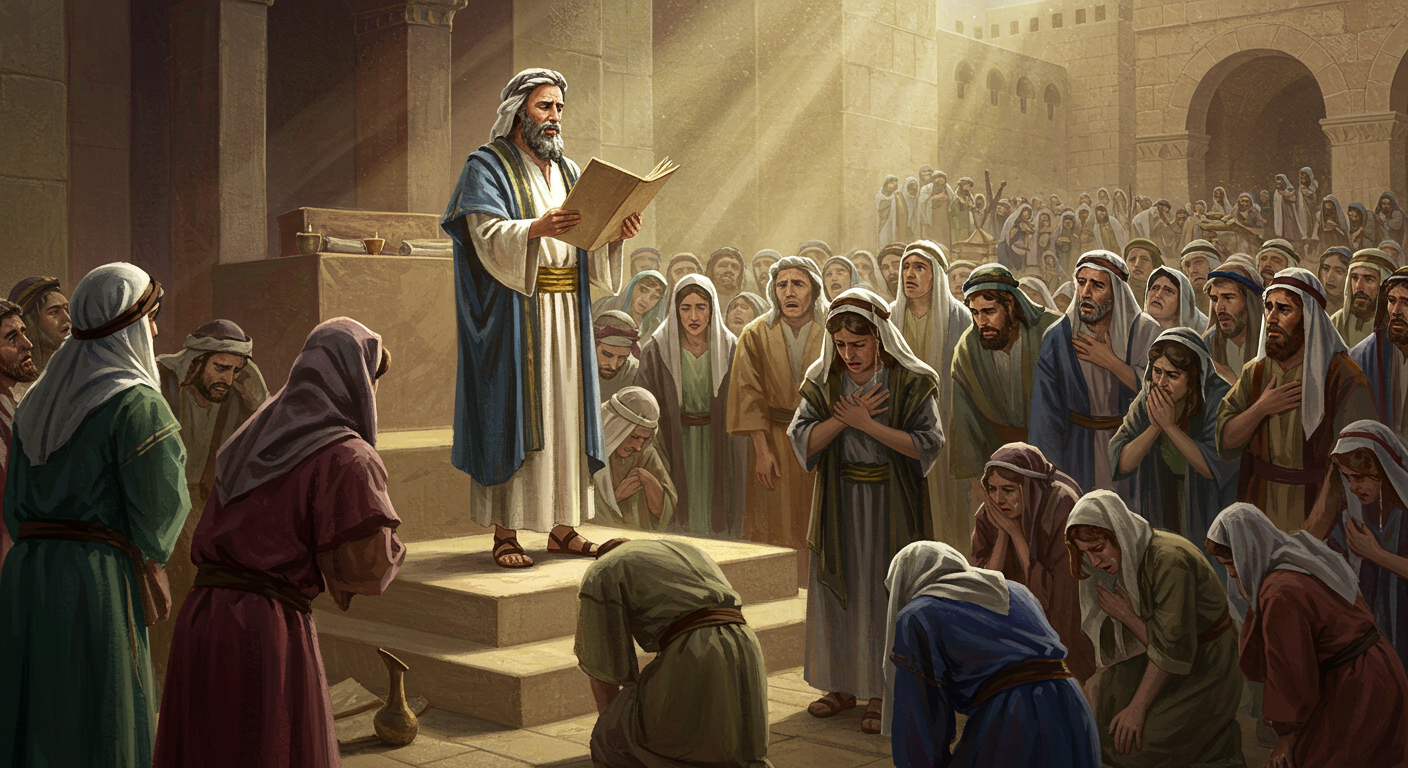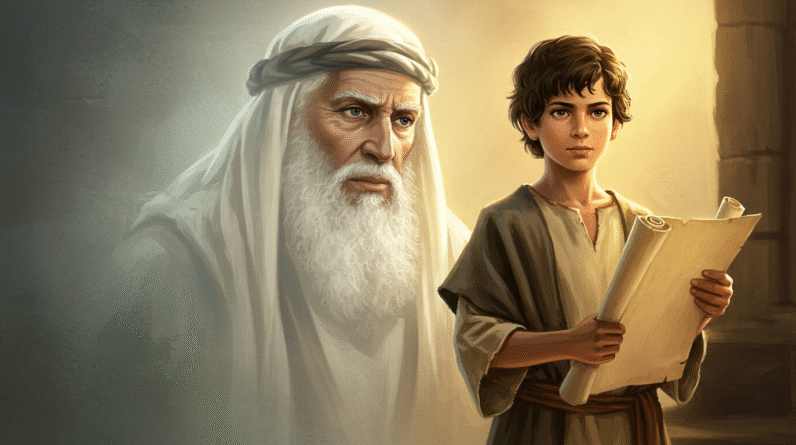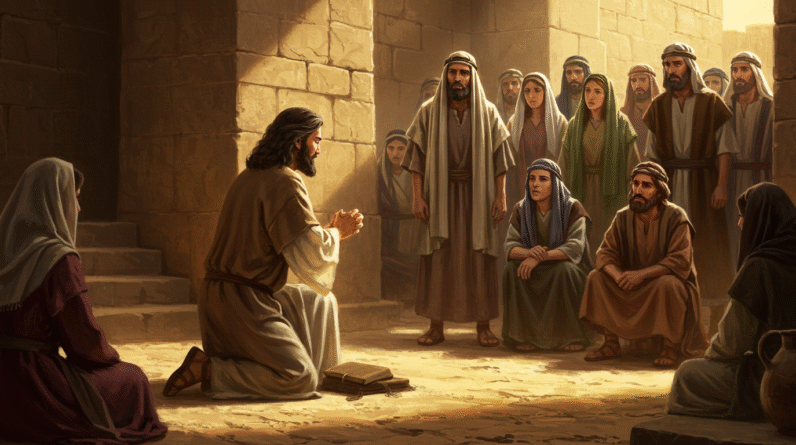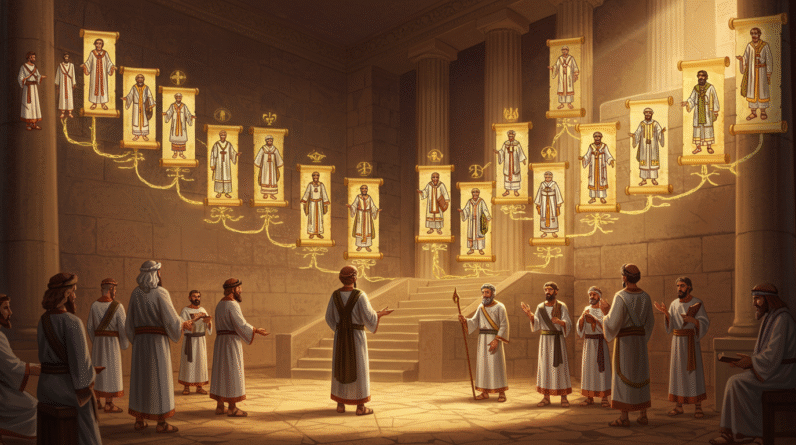The Role of Ezra in the Spiritual Revival of Israel
Oh, Ezra! It’s hard not to picture him as a superhero of sorts — not one with a cape or supernatural powers, but with something just as powerful: the Law. Imagine a time when Israel’s identity felt like a shadow of its former self, a tapestry of a once-vibrant culture now threadbare. Enter Ezra, stepping into his role during the post-exilic period with a tenacity and fervor that would inspire generations to come. Are you ready to dive into the world of spiritual revival led by Ezra? Let’s unravel his significant yet often overlooked role in rekindling Israel’s spiritual identity.
Ezra’s Background: A Man of Determination
You can’t fully appreciate what Ezra accomplished without understanding where he came from. A scribe deeply rooted in the traditions of his ancestors, Ezra was also a priest. His lineage traced back to Aaron, the brother of Moses. Imagine, then, the rich heritage that informed his understanding of the Law. But heritage is only part of the story — Ezra was a man of action, determined to bring about real change.
Ezra’s origin story might not be as flashy as a superhero’s, but for a post-exilic Israel, he was exactly what they needed. When the people of Israel returned from Babylonian exile, they were trying to find their footing in a world that seemed to have slipped out under them. Ezra’s dedication as a scribe and his profound respect for the Law equipped him to lead this spiritual revival. Understanding his motives and background is crucial to comprehending his impact, don’t you think?
The Journey to Jerusalem: A New Chapter Begins
Picture this: a journey that was part pilgrimage and part mission, a caravan winding through the dusty roads back to Jerusalem. Ezra, having received permission from Artaxerxes, the Persian king, was set not just to visit but to institute a transformative spiritual revival. With the king’s blessing and funding, Ezra was like an agent of change, ready to breathe life into a world on the brink of cultural amnesia.
His journey was not merely physical. It was a symbolic transition, moving from mere survival to thriving in spiritual resurgence. The road to Jerusalem wasn’t just dirt and stones but a pathway to revival, a bridge between what was lost and what could be regained. Doesn’t it make you wonder what kind of courage that must have required? Ezra ferried a more valuable cargo than riches — the teachings of God’s Law, waiting to be replanted in the hearts of his people.
Reviving the Law: The Heart of Spiritual Renewal
Now, let’s get to the crux of it — the Law. For Ezra, the Law was more than a set of rules. It was the heartbeat of a nation, a compass pointing to a path of identity and purpose. He understood that reviving Israel’s spiritual identity meant returning to the roots laid out by the Law. It wasn’t just about memorizing regulations but embedding them into everyday life, allowing the law to once again become the fabric of society.
Imagine Ezra, standing in front of the people, reading the Law. His voice might’ve echoed against stone walls, reverberating across the assembly, words weaving through the air like a warm blanket on a cold day. The Law provided comfort and direction, a shared story that was theirs to live out once again. This act of reading the Law publicly was pivotal — it was both a reminder and a renewal of the covenant between Israel and God. It was, in every sense, a rebirth.

Spiritual Leadership in Action: Ezra as the Catalyst
You start to see just how Ezra’s role transcended that of a mere teacher when you consider his leadership style. Capturing hearts and minds was no easy feat, but Ezra had an ace up his sleeve — he led by example. His own devotion and strict adherence to the Law were infectious, sparking a collective longing among the people to rekindle their spiritual heritage.
Ezra knew that a spiritual revival required more than speeches and readings; it needed a community willing to rebuild its identity. Through his leadership, Ezra established gatherings and forums for study and discussion. Can you envision the spirited debates, the growing camaraderie as people rediscovered their faith? His ability to catalyze this spiritual awakening rested on an understanding that applied knowledge was transformative. People didn’t just hear the Law; they lived it, with Ezra guiding them every step of the way.
Confronting Challenges Head-On
Of course, it wasn’t all smooth sailing for Ezra. Leadership, even when motivated by a clear vision, often involves confrontation and correction. Ezra faced significant challenges, from internal conflicts to external opposition. One such challenge was the intermarriage between Israelite men and foreign women, which threatened the spiritual purity and practices Ezra sought to restore.
Confronted by this issue, Ezra didn’t shy away. He courageously called for repentance and reform, pushing for a return to the principles enshrined in the Law. Imagine the tension, the whispers among the crowd, the murmured agreements or dissent. Yet, Ezra was steadfast, understanding that adherence to the Law was not only about following rules but safeguarding the spiritual core of their faith. He navigated these tumultuous waters with a deliberate balance of firmness and compassion, always with revival in mind.
Ezra and Nehemiah: A Collaborative Effort
It’s interesting to note that Ezra didn’t walk this path alone. Alongside him was Nehemiah, the governor who primarily focused on rebuilding the physical walls of Jerusalem. While Ezra was deeply invested in the spiritual restoration, Nehemiah provided the structural rebuilding that created a tangible sense of safety and identity. Their collaboration was a powerful testament to how multifaceted revival can be — both the soul and the structure of a community need nurturing.
Their partnership highlights an essential truth: spiritual revival occurs not just in sacred spaces but in the mundane reality of everyday life. Serving side by side, Ezra and Nehemiah demonstrated that faith isn’t just a matter of personal conviction but a communal endeavor. Through their combined efforts, they orchestrated a profound transformation, reestablishing a physical and spiritual foundation for Israel. It was this dual approach that allowed the changes to take root truly.
The Lasting Impact: Legacy of Renewal
So, what’s left in the wake of Ezra’s leadership? A legacy far greater than buildings or written laws — a renewal of the spiritual essence of a nation. The seeds he planted blossomed into a stronger, more cohesive sense of identity among the Israelites. Even when challenges arose, the groundwork laid by Ezra ensured that the spiritual revival would flourish long after his lifetime.
Ezra’s revival wasn’t a quick fix but a profound transformation of heart and soul. It wasn’t just about resurrecting forgotten traditions but reinvigorating a community to live by the values they held dear. This legacy of renewal persists, providing valuable lessons on leadership, faith, and identity. It sparks reflection on the power of dedicated leadership and the unparalleled impact of spiritual revival led with purpose and passion.
Reflecting on Ezra’s Leadership Today
As you ponder the intricate role Ezra played in Israel’s spiritual revival, consider the timeless lessons his story imparts. In a world where identity and culture are often in flux, Ezra’s journey speaks to the enduring power of returning to your roots, the potency of rediscovering the spiritual narratives that shape who you are. His story beckons you to think about the ways spiritual revival can manifest in your own life.
What parts of your identity might be waiting for revival? How can leaders inspire transformation in ways that are both transformative and enduring? Ezra’s example challenges you to explore these questions, to read between the lines of history and identify what it means to be part of a living tradition. Ezra’s leadership wasn’t just about reclaiming the past but reshaping the future, and perhaps there’s a little bit of Ezra in all of us, waiting to be ignited.
Conclusion: Join the Conversation
Ezra may not be a household name, but his influence in the spiritual revival of Israel is unmistakable. His passionate adherence to the Law and dedication to community transformation left a legacy that continues to inspire. A revival steered by a man with an unwavering belief in a nation’s spiritual identity — isn’t that the kind of story that draws you in, invites you to dig deeper, to hold a mirror up to your own life and leadership?
Explore More
For further reading and encouragement, check out these posts:
👉 7 Bible Verses About Faith in Hard Times
👉 Job’s Faith: What We Can Learn From His Trials
👉 How To Trust God When Everything Falls Apart
👉 Why God Allows Suffering – A Biblical Perspective
👉 Faith Over Fear: How To Stand Strong In Uncertain Seasons
👉 How To Encourage Someone Struggling With Their Faith
👉 5 Prayers for Strength When You’re Feeling Weak

📘 Jesus and the Woman Caught in Adultery – Grace and Mercy Over Judgement
A powerful retelling of John 8:1-11. This book brings to life the depth of forgiveness, mercy, and God’s unwavering love.
👉 Check it now on Amazon
As a ClickBank Affiliate, I earn from qualifying purchases.
Acknowledgment: All Bible verses referenced in this article were accessed via Bible Gateway (or Bible Hub).
“Want to explore more? Check out our latest post on Why Jesus? and discover the life-changing truth of the Gospel!”








